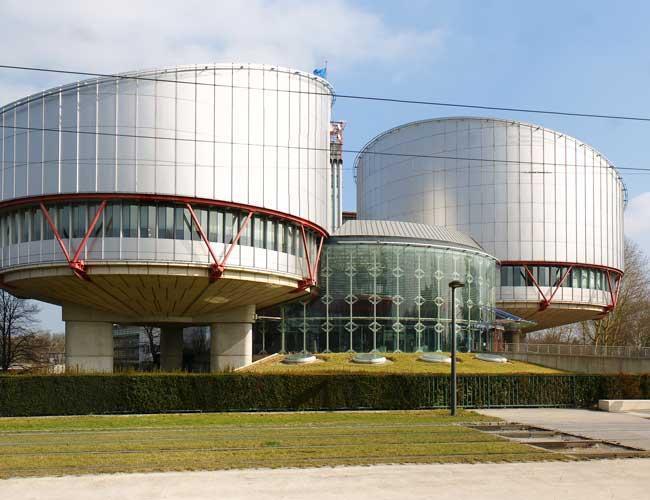
In its defense submitted to the European Court of Human Rights (ECHR) regarding the arrest of Peoples’ Democratic Party (HDP) deputies, Turkey has stated that the arrests are “necessary and appropriate” for the “protection of a democratic society” and “stopping violence.”
“The launch of an investigation into the applicants [HDP deputies] and their arrest were necessary for a democratic society. They were also appropriate for the protection of a democratic society, for living in peace, for protection from violence, and for success in the fight against terror organizations,” it said in its defense submitted to the ECHR.
The HDP on Feb. 20 filed an application at the court regarding the arrest of a number of its deputies, including HDP co-chair Selahattin Demirtaş. The HDP committee said in its application that it had no choice but to apply to the ECHR, as Turkey’s Constitutional Court was not carrying out any examination and was dealing with a large backlog.
Demirtaş has been in jail since Nov. 4, 2016, along with eight other HDP deputies including Figen Yüksekdağ, a former co-chair.
Turkey on Nov. 24 submitted its defense to the ECHR, but the content of the defense has only recently come to light.
The defense prepared by the Justice Ministry said the HDP deputies’ remarks were “in line” with those of the outlawed Kurdistan Workers’ Party (PKK) and accused the arrested deputies of “supporting ‘self-governance’ and defining [Turkish] security forces’ actions as ‘massacre.’”
“Political parties and their representatives are expected to condemn and stay away from terrorism, terrorist organizations and their actions, which constitute the biggest danger against democracy, the superiority of law, and human rights. The actions of the applicants have violated the constitution and its laws. The unity and integrity of the state cannot be considered in the context of political party activities,” the defense stated.
It also rejected suggestions that the “lifting of deputies’ immunity of prosecution was a step undertaken by the government to hinder opposition.”
“The [main opposition] Republican People’s Party [CHP] and the Nationalist Movement Party [MHP] also acted together to prevent deputies from supporting terror under the cover of parliamentary immunity,” the defense stated, referring to the controversial parliamentary vote in early 2016 to selectively remove some MPs’ immunity.
“Among those whose immunities have been lifted are CHP chair Kemal Kılıçdaroğlu and MHP chair Devlet Bahçeli. Summaries of proceedings against both of them have been prepared, with both of the party chairs giving their written and oral testimonies to the relevant authorities,” the defense stated.
In 2016, the Turkish Parliament has voted by a large majority to support a bill to strip 138 deputies of their immunity from prosecution. Most deputies from the main opposition CHP and the MHP had also supported the ruling Justice and Development Party (AKP) in the chamber.
Demirtaş absent from latest hearing
Meanwhile, HDP co-chair Demirtaş was on Dec. 14 not brought to the court in the southeastern province of Diyarbakır to make his defense, in a case in which he is accused of “insulting Turkish Republic.”
The Diyarbakır 7th Criminal Court of First Instance ruled on Dec. 11 that Demirtaş, currently jailed in the northwestern province of Edirne, should be present at his court hearing, due to take place on Dec. 14.
However, on Dec. 12, Edirne prison gendarmerie authorities notified the prison management that there was a “security risk” due to the planned assignment of escorting personnel and the fact that Demirtaş “is a recognized and well-known person with an extensive circle. The next day, the Edirne prison management notified the Diyarbakır court that it would not be able to transfer Demirtaş to Diyarbakır.
On Dec. 14, Demirtaş’s lawyers asked for their client to be present at the next hearing and demanded that the court file a criminal complaint against Edirne prison gendarmerie personnel. However, the request was denied.
The court said it would evaluate the demand for Demirtaş to be personally present at the next hearing and announce its decision before then.
The hearing is part of a case that is just one of a raft of cases brought against Demirtaş since his immunity was lifted.